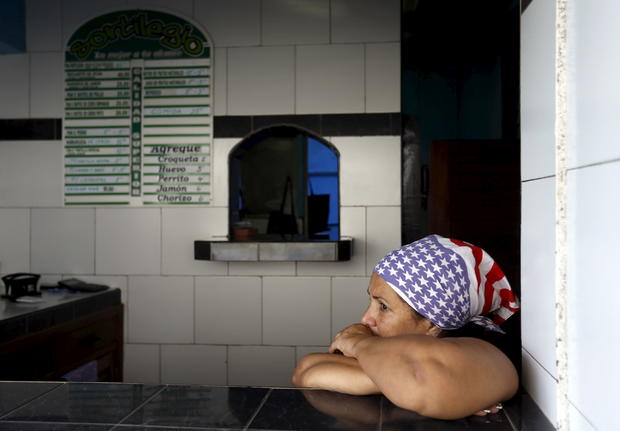What happens next with Cuba and the terror list
NEW YORK -- President Obama's announcement that he plans to remove Cuba from the State Department's list of state sponsors of terrorism, and his submission of his certification to Congress is intended to pave the way for the opening of embassies in Washington, D.C. and Havana.
President Obama's short certification stated:
I hereby certify, with respect to the rescission of the determination of March 1, 1982, regarding Cuba that:
(i) the Government of Cuba has not provided any support for international terrorism during the preceding 6-month period; and
(ii) the Government of Cuba has provided assurances that it will not support acts of international terrorism in the future.
Mr. Obama won't be able to make the anticipated move official before Congress gets 45 days to review the determination that Cuba is no longer deemed a sponsor of global terrorism. That determination is made by the State Department and handled as a recommendation for the president to act on.
Although the process gives Congress a role to play and divides the foreign policy powers between the Executive and Legislative branches of government, Congress does not have the power to block the president's decision.
The designation of a State Sponsor of Terrorism is based on three laws: Section 6(j) of the Export Administration Act, Section 40 of the Arms Export Control Act, and Section 620A of the Foreign Assistance Act, which together impose sanctions including restrictions on U.S. foreign assistance, and some trade.
There will, doubtless, be more heated criticism of Cuba's removal from the list in Congress. The U.S. laws that authorize the terror listing do give Congress the option of passing a Joint Resolution, or a bill to block a nation's removal, but the president has the power to override such a move.
Opposition to the removal is based in two groups; the first being critics -- politicians and private citizens alike -- who believe Cuba is still supporting terrorism and who make the point that the country harbors some fugitives from U.S. justice.
The second group includes American claimants who have a judgment from a U.S. court against the communist nation. The Foreign Sovereign Immunities Act allows Americans to seek damages from Cuba's frozen assets in the U.S.
Relatives of four Cuban-American activists whose planes were shot down by the Cuban military as they flew over Cuban territory to drop leaflets in 1996 are among such claimants. The "Brothers to the Rescue" pilots' families have sought to claim damages under the act.
Removing the designation would leave any Americans with a claim against Cuba to seek damages directly from the Cuban government.
President Obama said that the statutory standard and the facts, "have led the President to declare his intention to rescind Cuba's State Sponsor of Terrorism designation. More broadly, the United States will continue to support our interests and values through engagement with the Cuban government and people."
